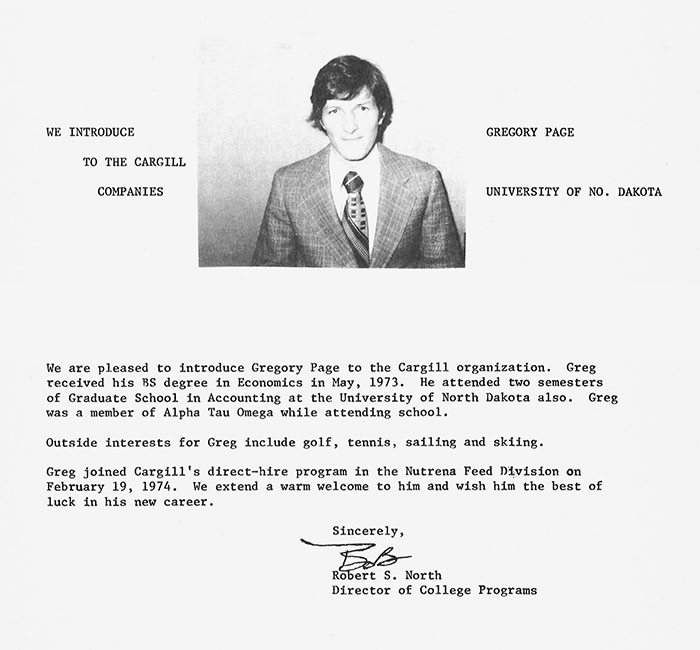Shaping Cargill's Future Leaders
The company establishes a job training program focused on nurturing college graduates and helping them find a future at Cargill
January 01, 2015
Ever since Cargill started its first job training programs in the early 1930s, it has recognized the value of welcoming bright, young talent into the company. It was one of the first agricultural companies to institute college recruiting, a move that positioned the company for ongoing success. Many Cargill employees who have worked their way into top management positions are graduates of the company’s trainee programs, including past CEOs Greg Page and Ernie Micek.
Cargill’s training programs expanded significantly in the 1940s after World War II. The company’s post-war growth called for new hires, so Cargill visited colleges, targeting promising veterans to fill open positions. Year after year, the company widened its search beyond the military. By the mid-1960s, recruiting teams were traveling the country meeting with up to 900 prospects, ultimately inviting approximately 85 to interview at Cargill’s headquarters. Chosen candidates underwent a rigorous three-to six-month training program that kept them moving to a new division of the company each week—a method designed to expose trainees to all company operations and naturally reveal the job that best fit their skillset.
Cargill found many of its new hires at Midwestern liberal arts colleges across the United States. It valued well-rounded individuals who had been exposed to various areas of study, rather than those who were only qualified for a single, specific line of work. To nurture their growth, Cargill created a framework that reinforced important skills and monitored professional development. The process revealed that many of the company’s entry-level employees were qualified to take on managerial and executive opportunities. As positions became available, recruits who showed exceptional promise stepped into more advanced roles.
Today, Cargill has more than 1,000 global employee volunteers who assist with recruiting efforts around the world. These volunteers are focused on spreading the word about what Cargill is, letting students know what the company has to offer and showing them how their college majors can translate into career paths. Cargill’s global volunteer recruiter, Laura Lachowitzer, welcomes all motivated students to apply for a career with Cargill: “Opportunities are endless here. It does not matter what your major is—it is about your passions, your desires, your relationships and your willingness to learn.”

[image caption] After graduating, Greg Page, Cargill’s future CEO, is welcomed into the direct-hire program, beginning a successful career path tailored to his strengths and interests.
